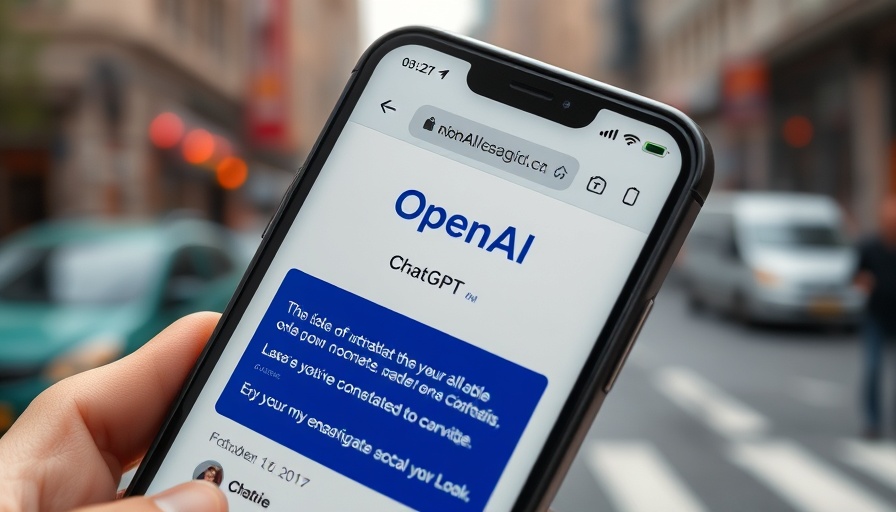
The Significance of the OpenAI Partnership with the UK Government
The recent strategic partnership between OpenAI and the UK Government marks a significant milestone in the integration of advanced technological solutions into public services. Driven by a mutual aim to enhance sectors like education, security, and justice, this collaboration sets the groundwork for the future deployment of artificial intelligence (AI) across essential public domains. Technology Secretary Peter Kyle emphasized the transformative potential of AI, proclaiming it fundamental for addressing substantial challenges faced by the nation such as healthcare inefficiencies and economic disparities.
Historical Context: The Evolution of AI in Governance
AI's role within public administration has evolved dramatically over the past decade. Initially viewed as an experimental tool, it is now considered a vital component in policy-making and operational efficiency. Countries like the UK have begun to embrace AI's potential, recognizing the critical need for structure and regulation as AI technologies proliferate. According to a 2022 report by the UK Government's AI Council, effective implementation means aligning AI innovations with ethical guidelines and standards, a vision echoed in this new partnership with OpenAI.
Understanding the Scope of the OpenAI Deal
This partnership aims for comprehensive coverage across crucial services, promising to unlock avenues for groundbreaking applications of AI that adhere to UK standards. Notably, the collaboration emphasizes the development of infrastructure that ensures public services remain efficient and accountable. OpenAI's commitment to increasing its London office reflects a dedicated intention to foster local job creation and technological proficiency, integral to the government's AI Opportunities Plan.
Social Impact: How This Technology Can Revolutionize Everyday Life
The integration of AI into public service can substantially benefit citizens by streamlining processes and making services more effective. For instance, in education, AI can personalize learning experiences, making it easier for instructors to address individual student needs. In the justice system, predictive analytics can help with case management and resource allocation. As OpenAI CEO Sam Altman noted, AI is pivotal for nation-building, conveying hope that this technology can bridge existing service gaps and drive social equity.
Future Insights: A Look Ahead at AI and Policy
With this partnership, the UK positions itself as a key player in international AI discussions. As countries worldwide seek to harness AI's potential, the UK's proactive stance may set precedents on ethical standards, innovative applications, and collaboration frameworks between technology firms and governments. The challenge will be in balancing progress with the necessary regulations to ensure that AI developments promote transparency and trust among the public.
Counterarguments: Concerns and Critiques Surrounding AI Implementation
Despite the optimistic outlook, critics have raised concerns over the potential for AI to exacerbate existing inequalities if not managed carefully. Experts caution that without proper regulation, the deployment of AI can lead to biased decision-making, impacting vulnerable communities negatively. It is crucial for policymakers to engage with diverse stakeholders to ensure that AI is developed and implemented with fairness and inclusivity in mind.
Conclusions and Next Steps
The collaboration between OpenAI and the UK Government signals an important step towards leveraging AI for public good. However, it is essential that as this partnership unfolds, a continuous dialogue about the ethical implications and societal impacts of AI is maintained. Stakeholders must work collaboratively to ensure AI technologies benefit all, upholding the principles of transparency and accountability.
Stay informed about how such partnerships evolve and their impacts on our daily lives. Following developments in the AI field is essential as we navigate the future of technology in public service.
 Add Row
Add Row  Add
Add 




Write A Comment